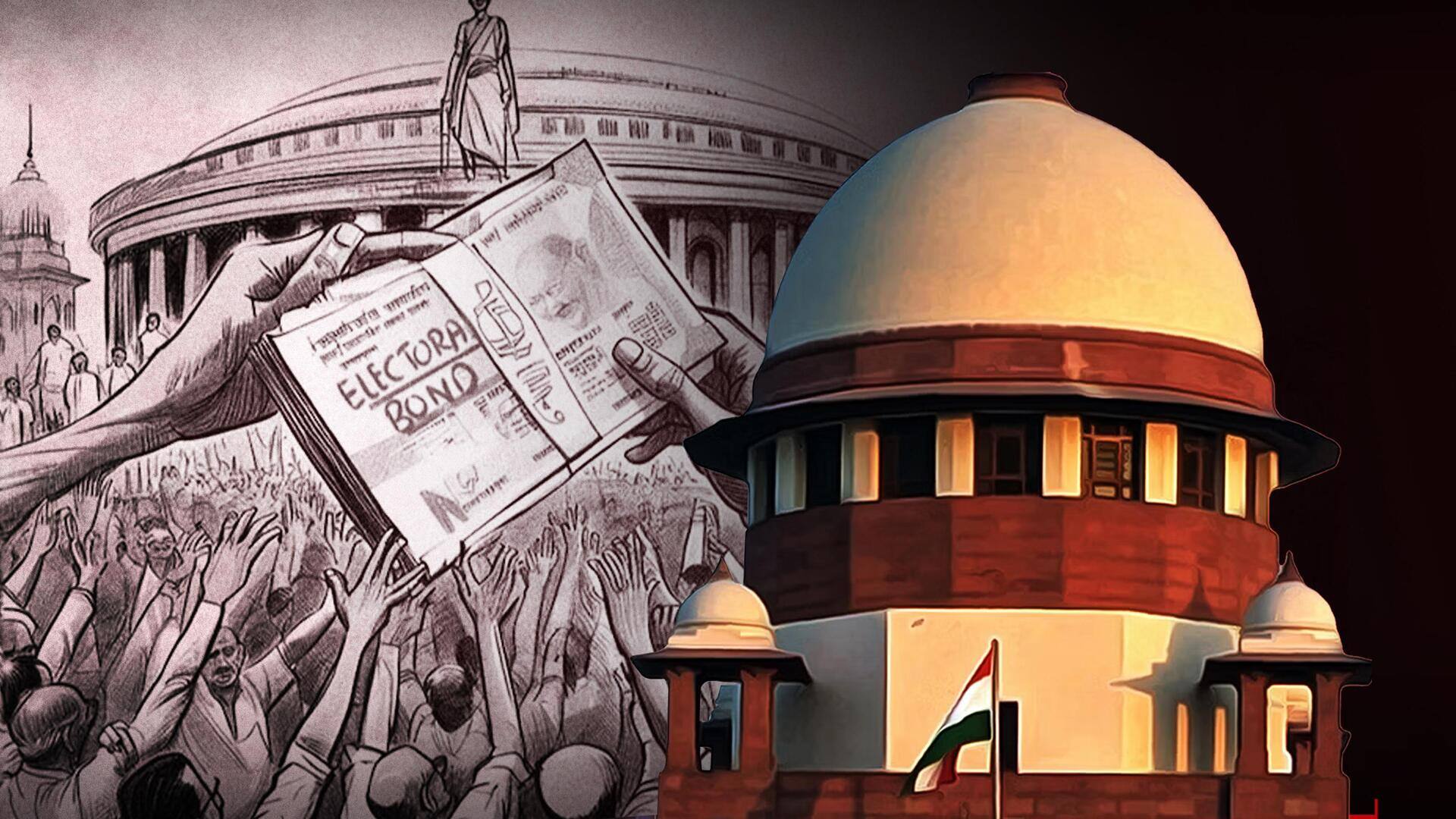
SC strikes down Electoral Bonds Scheme, calls it 'unconstitutional'
What's the story
The Supreme Court on Thursday struck down the Electoral Bonds Scheme (EBS) for political funding, saying that it violates the citizens' right to information.
The scheme is unconstitutional and may lead to a "quid pro quo arrangement" between political parties and donors, Chief Justice of India DY Chandrachud said in the judgment.
Notably, a five-judge SC bench comprising CJI Chandrachud, Justices BR Gavai, Sanjeev Khanna, JB Pardiwala, and Manoj Misra had reserved its judgment in the matter in November 2023.
Context
Why does this story matter?
In January 2018, the Centre announced that the EBS would allow citizens to purchase bonds from the State Bank of India (SBI) to support political parties.
The scheme enables a qualifying political party to redeem the bonds exclusively through a bank account.
The EBS has been embroiled in controversy ever since it was launched, with several opposition parties accusing the Bharatiya Janata Party (BJP) of keeping the scheme "opaque and secretive."
Judgment
SC orders SBI to cease issuing electoral bonds immediately
Now, the bench unanimously agreed that the scheme's goal of combating black money and preserving donor confidentiality is insufficient, as electoral bonds aren't the sole method to address black money.
The apex court ordered the SBI to cease issuing electoral bonds immediately and disclose donation details to the Election Commission of India (ECI).
The commission must publish this information on its website by March 13, it added.
Data decoded
Electoral bonds' share in political funding
From March 2018 to July 2023, electoral bonds facilitated the transfer of Rs. 13,000 crore to various political parties.
Data released by the ECI in January 2023 showed that four national political parties, the BJP, Trinamool Congress (TMC), Congress, and Nationalist Congress Party (NCP), received 55.09% (Rs. 1,811.94 crore) of their total income through electoral bonds in 2021-22 alone.
The BJP obtained the majority of these donations, followed by the TMC and the Congress.
Background
Controversy over EBS
In March 2023, the ADR reported that over 66% of the total income of seven national parties came from electoral bonds and anonymous sources.
These parties collected Rs. 2,172 crore from unknown sources in 2021-22, with 83% (Rs. 1,811.94 crore) originating from electoral bonds.
Although electoral bonds have allowed political parties to receive funding through official channels, concerns about transparency and accountability persist.
The ADR had informed the SC that the ruling BJP received most donations through electoral bonds.
Know more
What are electoral bonds?
Electoral bonds are a means for anonymous Indian citizens/corporations to donate money to political parties.
These bonds are available in multiples of Rs. 1,000, Rs. 10,000, Rs. 1 lakh, Rs. 10 lakh, and Rs. 1 crore and can be purchased at approved SBI offices.
The donor could give these bonds to a party or parties of their choice, which could opt to cash in such bonds within 15 days.
This approach assured that the donor's name remained anonymous.